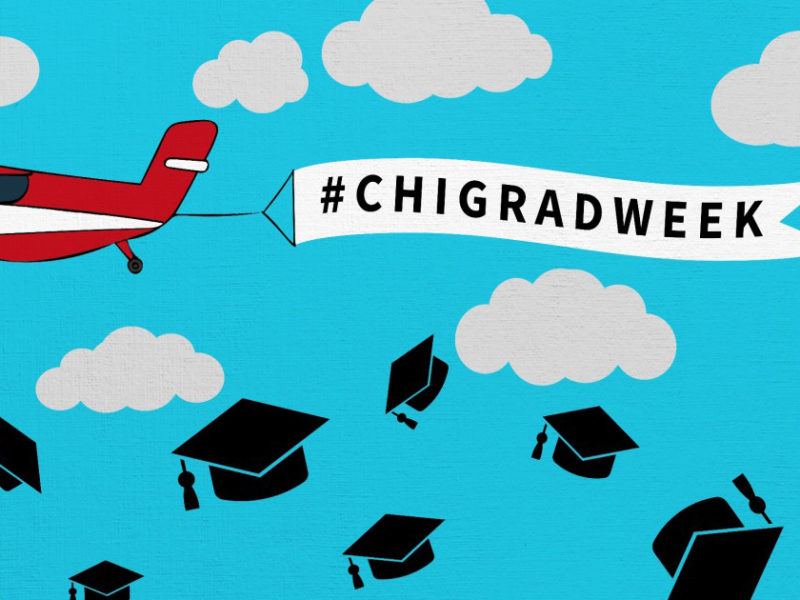
How Gardens Sustain Vulnerable Communities During COVID-19 Crisis
From the beginning of COVID-19 crisis, day-by-day, communities across Chicago have banded together in an effort to share emerging or exacerbated problems and ideas for how to solve them. In communities most deeply affected by the current crisis, food insecurity has emerged as a pervasive and devastating challenge.
Some organizations, like the Gardeneers, which is re-vamping their efforts to bring fresh food to vulnerable communities in the face of coronavirus. Since 2014, Gardeneers has worked with schools across the west and south sides of Chicago to implement direct service, hands-on garden education programming. In 2019, they served a network of 20 schools and worked with more than 2000 students in their gardens. Now, they’re adapting their model to make sure the most vulnerable Chicagoans continue to have access to healthy, nutritious food. In a way, they’re going back to their roots.
Chicago Ideas (CI): How have your plans for the growing season changed since the beginning of this crisis?
Gardeneers (GN): In a normal year, our focus is on education rather than production, but with Illinois schools being closed due to COVID-19, we are not able to implement our standard educational programming. We don’t expect classes to resume before summer, and we do expect that this crisis will exacerbate existing inequities regarding access to fresh fruits and vegetables. Every pound of produce we are able to grow will be that much more important this year. We are continuing to grow produce at our largest school farm and garden sites, and plan to give away thousands of pounds of produce grown in the communities we serve, where access to fresh fruits and vegetables is often already limited.
CI: What benefit is there to turn toward gardening and growing food at home during this time?
GN: It’s always a good time to start growing your own food, but especially now given this crisis. First and foremost, every bite of food you are able to grow yourself helps reduce the demand on essential workers. This includes agricultural workers who harvest, drivers who transport, and workers who stock the shelves at the grocery store. Every little bit helps, and when everybody pitches in a little bit, it makes a big difference.
Gardening is a great way to relax when we are struggling with isolation and uncertainty. If you are also now educating your children at home, the garden offers an endless source of opportunities to learn.
Another benefit is the opportunity to notice urban wildlife like birds, insects, and animals in the city. These animals are very important to our ecosystem and our food systems. We partner with Lincoln Park Zoo, who has an Urban Wildlife website where people can learn more about the urban wildlife ecosystem and help the zoo. We use this website during certain programs and our youth love engaging with all of the different information they gather and share.
CI: What specifically can people be growing right now if they have little space or experience?
GN: One of the easiest ways to get started when resources are scarce is just to re-grow scraps from produce in your kitchen. If you take the base from a head of lettuce, celery or green onions and set it in water in a sunny windowsill, it can re-grow. Tomatoes are simple enough to grow as well. Save some seeds from your salad’s tomato, rinse and let them dry on a napkin in the window sill for a few days and plant 1/4” deep in a pot of soil, watch and wait.
If you are in a position to order seeds and soil, we highly encourage people to support their local garden shops. Many are still open, and providing curbside pick-up. Gardeneers are also very lucky to partner with organizations like Home Grown Gardens, who offer services to help first-time and veteran gardeners build and maintain beautiful, organic produce gardens in their backyards.
CI: What items might someone already have at home that can be repurposed for gardening?
GN: After you’ve used up the toilet paper itself, those cardboard tubes in the center are great for starting seeds because they biodegrade. Cardboard egg containers can be used to start seeds, ziplock bags and napkins as well. Yogurt cups cut into strips can be plant labels and old milk jugs and juice containers can be made into both growing pots and watering cans with a quick trip to YouTube or Instagram.
CI: Is there a good way for people to connect with other growers in their neighborhoods during shelter-in-place?
GN: There are many local growers and institutions who are working very hard to keep providing food to the masses. Check with your neighborhood farmers’ markets and see how they’re adapting. Green City Market, Logan Square Market, Homan Grown, Catatumbo Cooperative Farm, Sweet Water, Windy City Harvest and so many more amazing groups are innovating and serving thousands of people all across the city and state.
More Resources:
- The Gardeneers website will be revamped in the next month or two, and one thing we plan to build is a new and improved resources page. Keep an eye out for when that goes live, but until then you can find us on Instagram @gardeneerschicago.
- The Cooperative Gardens Commission has their resources listed on Craigslist under the tag “#CoopGardens”
- Chicago Community Gardeners Association is a great resource for novice as well as master growers in the city, with their blog posts and awesome membership
- Advocates for Urban Agriculture is an awesome place to stay abreast with what’s going on the ground in Urban Agriculture in Chicago, be it advocacy and outreach or just meeting awesome growers to collaborate and fellowship with.
- Chicago Food Policy Action Council, is instrumental in moving policy for urban growers forward with urbanites in mind. As we see a larger shift towards more urban agriculture in Chicago, CFPAC has been one of many organizations at the forefront of making growing food equitable in Chicago.
- The Chicago Botanic Garden Holds a nature moment on Wednesdays from 12-1 p.m. CT. They share images from the Garden and invite you to share what you are seeing in your backyard or neighborhood during the week.




